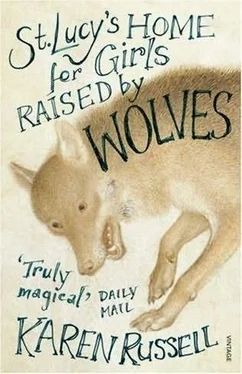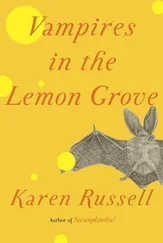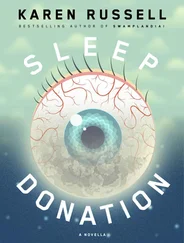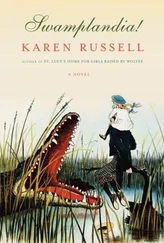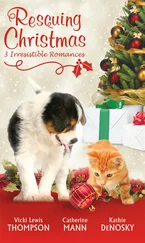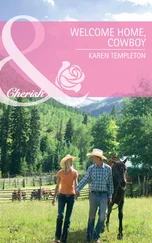“Don’t curse, Tek.” Mr. Oamaru raises his eyebrows at my mother. “I wonder who he learned that language from? Nobody in this family, that’s for sure.”
There it is, the rustle of dead leaves. Dried sap, a branch crack, the whirring teeth of Mr. Oamaru’s saw. My father — my real father — is a limb that got axed off the family tree a long time ago now. My mother coughs and cleans phantom juices off her silver with a cloth doily. My sisters clench their knives.
“Listen, don’t you bring my father into this….”
“The Avalanche,” peacemaker Rachel recites, “is very important. It’s a privilege to sing it. It’s a celebration of our past.” Everybody around the table smiles at her.
“Yeah? Well, I’ve seen how easily the past can get rewritten.” I glare at Mr. Oamaru. “Lyrics change. New authors come along.”
We are flying to the Aokeora Glacier to sing down the snows. It’s one of those rituals whose true meaning is lost in antiquity, a ritual that we continue because of blind tradition and our parents’ desire to booze. You can see the Aokeora Glacier from the red roof of our silo, rising some thousands of feet above our valley. We bake and sell moonpies all year to pay for our trip to the top. (The Waitiki Valley Boys Choir is fiscally dependent on the pity of mothers. Our moonpies look and taste like shoe heels.) The ice planes we hire are four-seaters, and it takes several trips to fly the entire Waitiki Valley Boys Choir up there. It’s a funny sort of concert. We leave our audience so far below us, out of earshot.
Our families gather at the base of Aokeora and synchronize their watches. They can’t hear us, of course, and they certainly can’t see us, but they crane their necks and imagine. At precisely ten o’clock, the crowd slurs along in rough jolly voices: “Ho! Ho! Ho! Ho! The Piii-raates’ Conquest!” For our finale, the choir hits the high C that triggers the Avalanche. We hold that single note for as long as we can. Sometimes the weather cooperates. Then our voices send rocks crunching down the side of the glacier. Snowbursts explode off the cliffs like white fireworks. Chunks of ice plummet into the moat around Aokeora, shooting up whale flukes of water. Two years ago, we sang so well that melt-water hosed our parents’ faces. It’s a way for the parents to hear us, I guess, albeit indirectly. Everybody gets a little sniffly about it, especially the mothers. For some of us, it’s the last year that we can goad our voices to that altitude.
The Waitiki Valley Boys Choir Proudly Presents
10:00
A Stirring Rendition of
“The Pirates’ Conquest,”
Conducted by Franz Josef
10:12
Avalanche
10:13
Punch and Moonpies
In Waitiki Valley, most everyone is a descendant of the Inland Pirates. Our great-great-grandparents sailed along the glacial river, burned their thieving boats, and then moved inland to meet the locals. The Moa were a peaceful, stationary people, who only killed one another. And then our pirate forebears arrived, swilling brandy and sneezing Mainland diseases all over them. We sing a ra-ra tribute to the pirates every year at the Winter Concert, “The Pirates’ Conquest.” It’s our local anthem, these squirrelly arpeggios that celebrate our pirate forebears’ every ancient offense. Verse 1: The quick extinction of the Moa’s sacred red penguins. Verse 2: The depletion of their greenstone quarries. Verse 3: The invasion of their mothers’ bodies. Verse 4: Their stolen treasure. And what did we bring the Moa in return? Grog and possums. Quail pox. Whores.
It’s a weird thing to harmonize about.
Verse 4 is the worst. It’s a lamentation for the pirates’ lost treasure. (Formerly the Moa’s holy relics, although we downplay this detail in “The Pirates’ Conquest.”) Captain Walley and his men hid the profits they’d swashbuckled in the mountains. These pirates assumed, with typical pirate arrogance, that their plunder would stay safely frozen away for an eternity. But maps don’t work in a country of glaciers. The treasure got lost on calved icebergs and crushed into the impasse of moraines. By the time our great-great-grandfathers returned to recover the treasure, X marked a spot that had long since melted into the sea. Bar fights still break out over it every once in a while, the product of our grandparents’ bloody and useless nostalgia.
The grandparents, hoarse and contemptuous, like to remind us of the true Avalanches, their Avalanches, from the early century. They have a knack for making you feel like you are betraying your pirate lineage just by sitting in a car. “How do you like that city-boy juice, city boy?” they’ll ask, watching you pour berry cocktail from a carton. Our grandparents juiced frozen berries with their own teeth. They sang more sweetly than we ever will. They never sold a single moonpie. They got to the top of Aokeora with blood and gumption, crescent axes, and it took them five days. It wasn’t uncommon for boys to die.
All you have to do, they wheeze, is nudge a snow lump over the edge with your voice. Easy.
Our Avalanche is a setup. It’s a show for the cheap seats. The choir director, Franz Josef, flies up a few days in advance and takes a hatchet to the powder. He picks out snow that’s survived the melt season: loosened with crampons, in regular contact with sunlight, eager to be sung apart or sunk into our valley. We sing, and we pretend that it’s our frail voices that fracture the glacier. Theoretically, the snow could ball up and fall on us, but our parents encourage this death risk with words like tradition, heritage, and rite of passage. They like to believe in the old, boulder-rolling power of our songs. They like to see the evidence of our voices, even if they can’t hear them.
With any luck, this will be my last Winter Concert. I’m hoping my voice will change later on this summer, and then I will never have to sing down another Avalanche. I ask God to grant me this wish every night. “God,” I pray, “please deliver me from the choir.” I kneel beside my attic bed on bare, hairless knees, and tune a hopeful ear for damage in my voice. I can hear my prayer coming true in the shower, where I sing test syllables. My voice sounds like the doorbell to a condemned building. Shrill, with a new hollowness behind it.
When I was a much younger boy, my mother was beautiful, but it was a sewn-up tulip kind of beauty. Then my father left. We curled in and blackened. We were heathens, you know, before Mr. Oamaru and his piratical, body-soul conquest of my mother. Mr. Oamaru has had a soft opening effect. He paid her mortage and made my sisters. He made her beautiful again. Everyone notices. Other mothers pay her incredulous compliments, peppered with real jealousy: “Why, you look like a new person, Leila. You look so happy. ”
And you know what? I hate him for it.
If you’ve seen me in town, I guarantee you don’t remember. Dark eyes, a red lick of hair under a dark hat. I’m not a lacy saint like my sisters, but I don’t think I’m an exceptionally bad kid, either. I love my mother and my sisters, and I do my barn chores enough of the time. My stepdad, Mr. Oamaru, seems most proud of me for the sins that I resist: I don’t chew tobacco, I don’t fake sick, I don’t vandalize silos. Once, he actually complimented me for not “diddling with” the reindeer, as the Tau boys have been rumored to do. These are tough victories to take pride in.
Like most men in the valley, Mr. Oamaru is a reindeer farmer. He grazes his blue-gray stock on ancestral Moa land. He is a good man who takes good care of my mother. He claims he loves to watch me sing. When we sang down the Avalanche last year, Mr. Oamaru collected an eyedropper of the glacial snow. He wears it under his plaids on a fraying noose knot, a vial of melted time. “You sang well, Tek. You make a father proud.” I wanted to smash that vial on sight. Everybody knows that I’m a lousy singer. On my best days, my voice melts into the other boys’ and I swallow my mistakes.
Читать дальше
